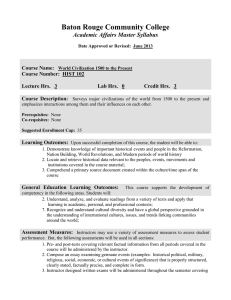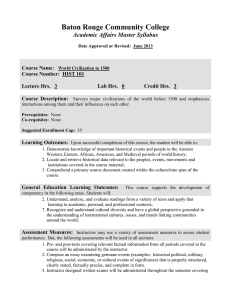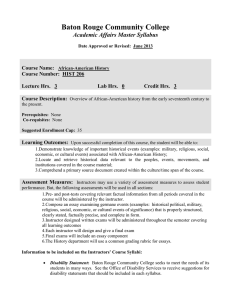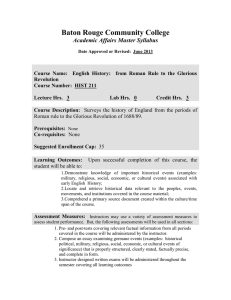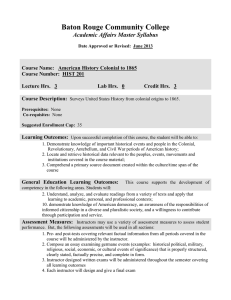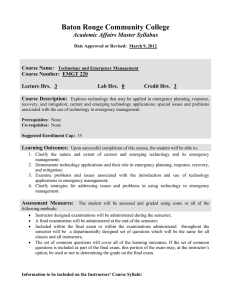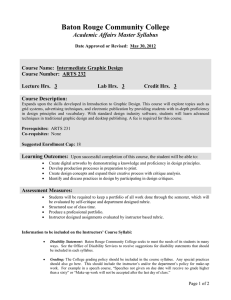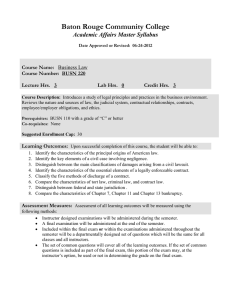Baton Rouge Community College Academic Affairs Master Syllabus
advertisement
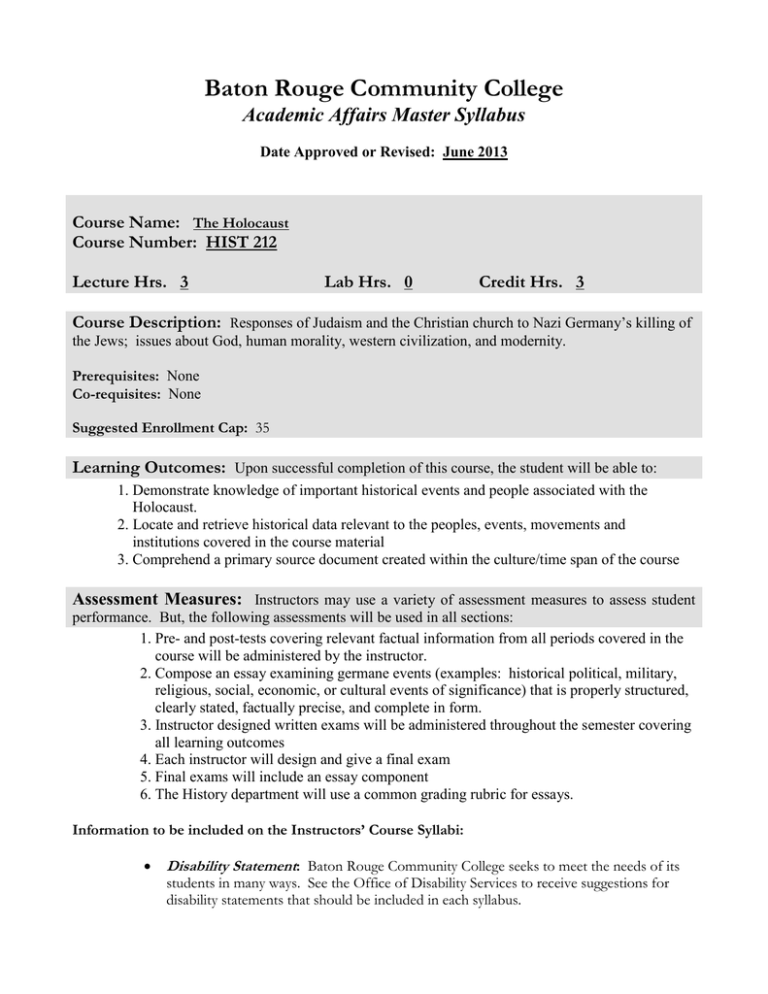
Baton Rouge Community College Academic Affairs Master Syllabus Date Approved or Revised: June 2013 Course Name: The Holocaust Course Number: HIST 212 Lecture Hrs. 3 Lab Hrs. 0 Credit Hrs. 3 Course Description: Responses of Judaism and the Christian church to Nazi Germany’s killing of the Jews; issues about God, human morality, western civilization, and modernity. Prerequisites: None Co-requisites: None Suggested Enrollment Cap: 35 Learning Outcomes: Upon successful completion of this course, the student will be able to: 1. Demonstrate knowledge of important historical events and people associated with the Holocaust. 2. Locate and retrieve historical data relevant to the peoples, events, movements and institutions covered in the course material 3. Comprehend a primary source document created within the culture/time span of the course Assessment Measures: Instructors may use a variety of assessment measures to assess student performance. But, the following assessments will be used in all sections: 1. Pre- and post-tests covering relevant factual information from all periods covered in the course will be administered by the instructor. 2. Compose an essay examining germane events (examples: historical political, military, religious, social, economic, or cultural events of significance) that is properly structured, clearly stated, factually precise, and complete in form. 3. Instructor designed written exams will be administered throughout the semester covering all learning outcomes 4. Each instructor will design and give a final exam 5. Final exams will include an essay component 6. The History department will use a common grading rubric for essays. Information to be included on the Instructors’ Course Syllabi: Disability Statement: Baton Rouge Community College seeks to meet the needs of its students in many ways. See the Office of Disability Services to receive suggestions for disability statements that should be included in each syllabus. Grading: The College grading policy should be included in the course syllabus. Any special practices should also go here. This should include the instructor’s and/or the department’s policy for make-up work. For example in a speech course, “Speeches not given on due date will receive no grade higher than a sixty” or “Make-up work will not be accepted after the last day of class.” Attendance Policy: Include the overall attendance policy of the college. Instructors may want to add additional information in individual syllabi to meet the needs of their courses. General Policies: Instructors’ policy on the use of things such as beepers and cell phones and/or hand held programmable calculators should be covered in this section. Cheating and Plagiarism: This must be included in all syllabi and should include the penalties for incidents in a given class. Students should have a clear idea of what constitutes cheating in a given course. Safety Concerns: In some programs this may be a major issue. For example, “No student will be allowed in the safety lab without safety glasses.” General statements such as, “Items that may be harmful to one’s self or others should not be brought to class.” Library/ Learning Resources: Since the development of the total person is part of our mission, assignments in the library and/or the Learning Resources Center should be included to assist students in enhancing skills and in using resources. Students should be encouraged to use the library for reading enjoyment as part of lifelong learning. Expanded Course Outline: I. II. III. IV. V. VI. VII. VIII. IX. X. XI. XII. Why study the Holocaust? The Roots of Anti-Semitism in Religious History Image of the Jew in Germany and racial theories in Germany Conditions that led to the Holocaust The Nuremburg Laws Other Anti-Jewish Legislation 1933-1935 What was the “problem” that needed a “final solution”? The Wannsee Conference Life of Gerta Klein The relationship of the United States to the Holocaust The Jewish resistance movement Can it happen again?
